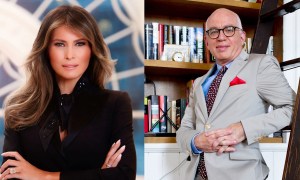The past two weeks have placed the African continent on the world map
for the wrong reasons.
Ex- Gambian President Yahya Jammeh held on to power forcing the newly
elected Adama Barrow to be sworn in at the Gambian embassy in Senegal.
He has been in power for more than 22 years, but other current African leaders have ruled longer.
Below is a list of Seven other African leaders who have led for more than 30 years…
Robert Mugabe (Zimbabwe) — 36 years
April 1980, when his country gained independence after he coordinated a
guerrilla war against white colonial rulers. He first was prime
minister, then took the presidency in 1987 — elected by the national
assembly — when a new constitution created the office to replace the
prime minister’s office.
— in 1990, 1996, 2002, 2008, and 2013. He is the last living African
leader who’s been in power continuously since his country’s
independence.
King Mswati III (Swaziland) — 30 years
Swaziland is Africa’s last remaining absolute monarchy, which is
hereditary. The country has an elected Parliament, and Mswati chooses a
prime minster from among the elected members.
Teodoro Obiang Nguema Mbasogo (Equatorial Guinea) — 37 years
Current election rules:
The president is elected in a majority popular vote for seven-year
terms. This leader last claimed victory in an April 2016 election,
reportedly with 93.7% of the vote. Opposition members and human rights groups have questioned the elections’ fairness.
Denis Sassou-Nguesso (Republic of Congo) — 33 years, nonconsecutive
It’s complicated. He first was president from 1979 to 1992, when he was
defeated in an election. He returned to power in 1997 during a civil
war, eventually standing for and winning a presidential election in
2002.
Up to three five-year terms, though a 2015 constitutional referendum
allowed Sassou-Nguesso to forgo the limits, according to Freedom House, a
US nonprofit that promotes democracy. The last election was in March
2016.
Jose Eduardo dos Santos (Angola) — 37 years
Current election rules: Under terms of a constitution approved in 2010,
the leader of the party that wins a popular parliamentary vote is
president for five years. Dos Santos’ party won elections in 2012, so
under the new rules, he started the first of a possible two terms. The
election was Angola’s third since it gained independence from Portugal
in 1975, as it was often wracked by civil war.
Yoweri Museveni (Uganda) — 31 years
Majority popular vote for five-year terms, with no term limits.
Museveni held the presidency for 10 years before he was chosen in the
country’s first direct presidential election in 1996. After his
re-election in 2001, Parliament removed presidential term limits in
2005. He was elected for a fifth term in February 2016.
Paul Biya (Cameroon) — 34 years
Additional Information from: CNN














